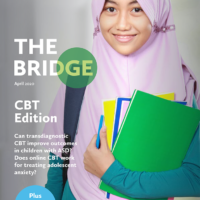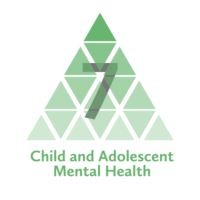Diagnosis
-

Is race linked to the structure of psychopathology in young people?
Researchers at the University of Wisconsin-Madison have found no significant difference in the hierarchical structure of psychopathology between African American and European American youths.
Read more -

How do the ICD-11, ICD-10 and DSM-5 diagnostic classifications of youth irritability and oppositionality compare?
Earlier this month, Spencer Evans and colleagues published data from their field study comparing the ICD-11 with ICD-10 and DSM-5 in terms of their classifications of irritability and oppositionality in youth.
Read more -

ICD-10 versus ICD-11: the effects of PTSD diagnoses
2018 saw PTSD symptoms being changed by the International Classification of Diseases. Now, data from a study recently published in the Journal of Child Psychology and Psychiatry have shed light on the clinical utility of these revisions in the ICD-11.
Read more -

Multi-disciplinary teams are needed to sensitively diagnose autism in Deaf children
An ethnographic study of NHS professionals, who diagnose autism in Deaf children, finds that recognizing the intersections between mental health and Deaf culture is essential for healthcare professionals to make sensitive diagnoses.
Read more -

April 2020 – The Bridge
This edition of The Bridge focuses on CBT, includes ‘Can transdiagnostic CBT improve outcomes in children with ASD?’ and ‘Does online CBT work for treating adolescent anxiety?’
Read more -

Modern illness or a thing of the past? Surveillance study of childhood/adolescent Sydenham’s chorea in the UK and the Republic of Ireland
Sydenham’s chorea is a rare condition that can have a severe impact on children and families. Tamsin discusses her and her teams research so far, explaining why it is important for clinicians working in child mental health services to report any suspected cases.
Read more -

Most cited CAMH paper #7 of 25: Measurement Issues: Screening and diagnostic instruments for autism spectrum disorders – lessons from research and practise
Tony Charman, Katherine Gotham.
Read more
Key Practitioner Message includes; Screening and diagnostic instruments help clinicians least in the cases where they are most in want of direction as their accuracy will always be lower for marginal cases -

Autism, a parents guide with Dr. Ann Ozsivadjian. Episode 1 ‘Identifying Autism – getting the right diagnosis’
Ann looks at the types and behaviours in children may get parents/carers to question if their child could be autistic, and what they can do to. This podcast series is supported by the Autism Diagnostic Practice at Clinical Partners.
Read more -

Age-related immaturity in the classroom can lead to ADHD misdiagnosis
Researchers from Australia, France, the USA and the UK have come together to compile a 2019 Annual Research Review for the Journal of Child Psychology and Psychiatry on the correlation between a late birth-date (relative to the school year) and risk of attention-deficit/hyperactivity disorder (ADHD).
Read more -

New developmentally appropriate diagnostic criteria need to be established to identify ADHD early in preschoolers
Attention-deficit/hyperactivity disorder (ADHD) typically emerges during preschool years and in a subset of children, can persist into adolescence. Early identification might help promote a favourable ADHD trajectory, but the current predictors of ADHD persistence are insufficient.
Read more